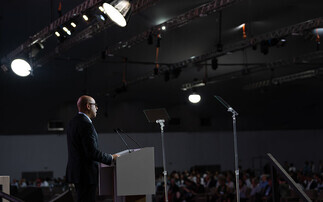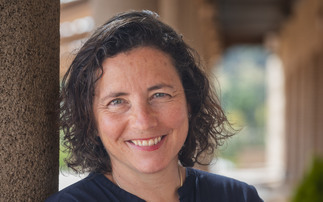With the first countries beginning to ratify the Paris Agreement, what loose ends still need to be tied up?
To start with, negotiators in Marrakech will need to develop a series of accounting guidelines to make sure that countries engaging in mitigation transfers can trade internationally without counting emissions reductions more than once. Officials will also need to flesh out plans for a new mechanism to succeed the Clean Development Mechanism (CDM) developed under the Kyoto Protocol, which will generate tradeable emission offsets.
Any carbon market developments could be further complicated by arguably the biggest omission from the Paris Agreement: the exclusion of international shipping and aviation. Both sectors are expected to come forward with proposals for their own market-based mechanism later this year, which could in turn influence the work to develop wider international carbon markets on the back of the Paris Agreement.
Despite its appearance in the Paris Agreement, carbon trading is still a thorny topic among parties and the success of these new mechanisms is not yet guaranteed. Almost immediately after Paris concluded Vikram Widge, head of climate and carbon finance at the World Bank Group, published a blog post warning a tough road lies ahead for carbon pricing.
"We cannot underestimate the challenges involved in delivering on the promise of the agreement - from ensuring environmental integrity of traded mitigation outcomes and avoiding double counting, to enhancing ambition and having countries make adequate policy changes, integrate carbon pricing policies in all sectors of an economy, and having the right incentives in place for the private sector to participate," he wrote.
Another area of the Agreement which still awaits further negotiation is the always tricky topic of climate finance. According to Dodwell, the "climate finance questions around numbers and targets were sort of left unfinished" at Paris. Developed countries did agree to extend the $100bn a year funding goal from 2020 to 2025 during the negotiations, but beyond that the COP decision promises only that a new post-2025 goal will be developed, worth a minimum of $100bn per year.
Closely related to climate finance are on-going concerns about loss and damage mechanisms. Paris represented something of a breakthrough on this issue, with the Agreement recognising loss and damage as a separate issue to climate finance and making the Warsaw International Mechanism (WIM) - a temporary body set up at COP 19 in Warsaw - into a permanent entity dedicated to developing approaches to help countries deal with the unavoidable impacts of climate change.
Over the next few months leading up to Marrakech the WIM's executive committee will need to develop a five-year work programme for approval at COP22, with a special focus on ideas addressing climate-related migration and displacement.
The WIM's plan will form one of the key negotiating topics at COP22, according to Saleemul Huq, an expert on loss and damage and senior fellow in the climate change group at the International Institute for Environment and Development. "COP22 in Marrakech will, in many respects, be a key loss and damage COP, in that it will decide the next five years of the programme on loss and damage," Huq tells BusinessGreen.
But Huq concedes that although loss and damage "is always a touchy subject", much of the heavy lifting was achieved in Paris. "It's a politically contentious issue," he says. "But given that we already have decisions and the mandate has been given to the mechanism's executive committee, if they do a good job and come back with well-argued and evidenced recommendations... I would guess it should be relatively easy for the COP to adopt their decision."
Away from the tense atmosphere of the negotiation room, there are also still some practical tasks for COP officials to wade through. Top of the list is to select a replacement for the outgoing Executive Secretary of the UNFCCC. Christiana Figueres, who is set to leave her post in July, and will be a tough act to follow.









